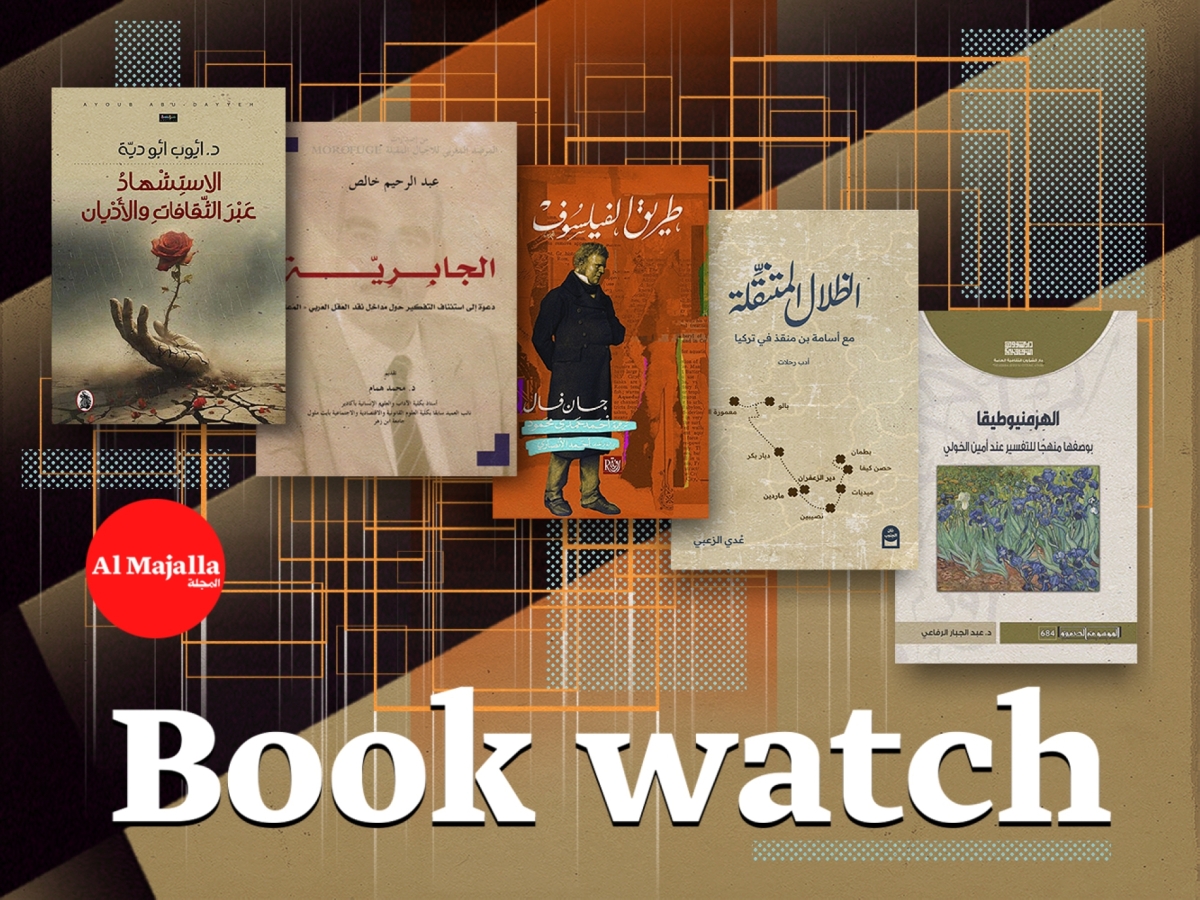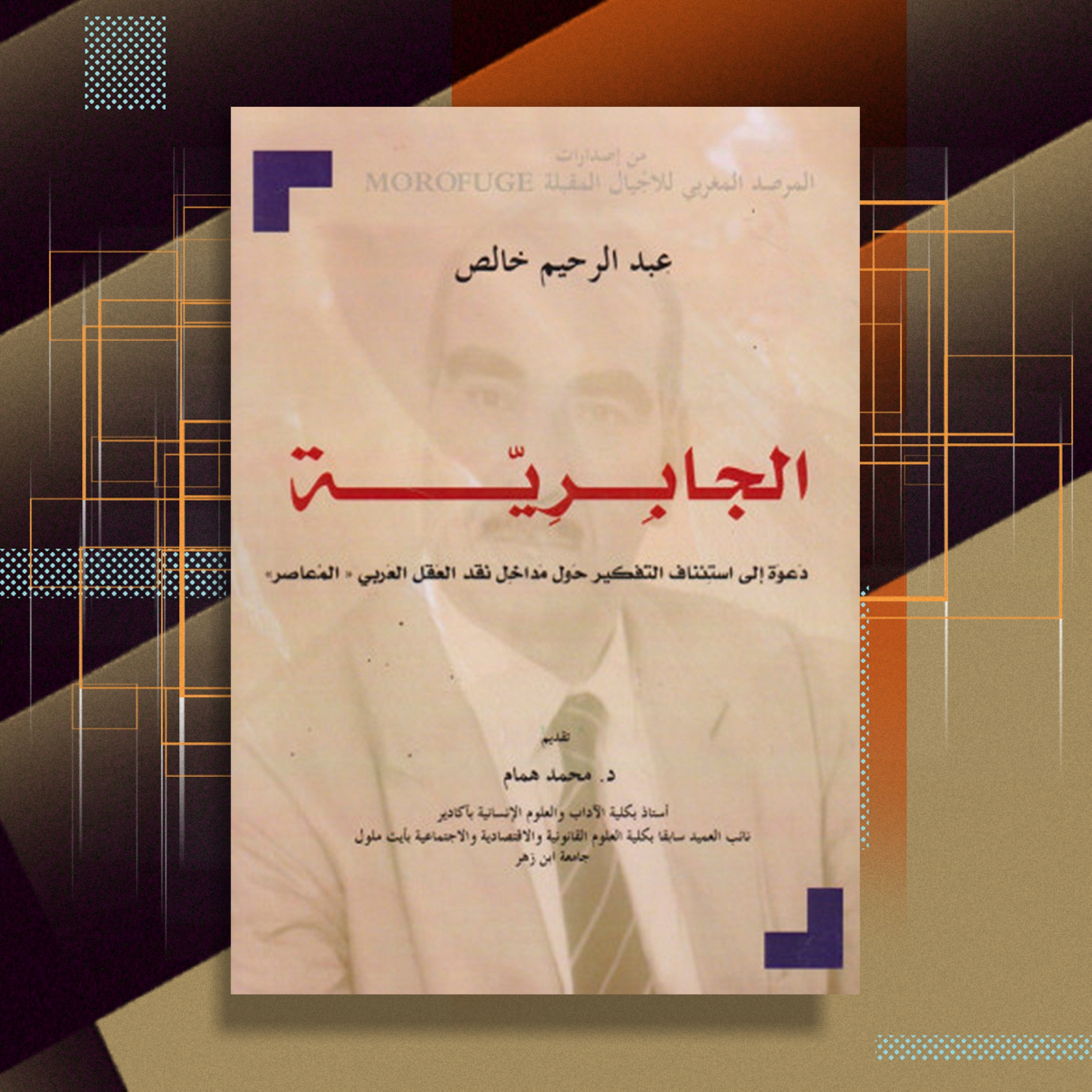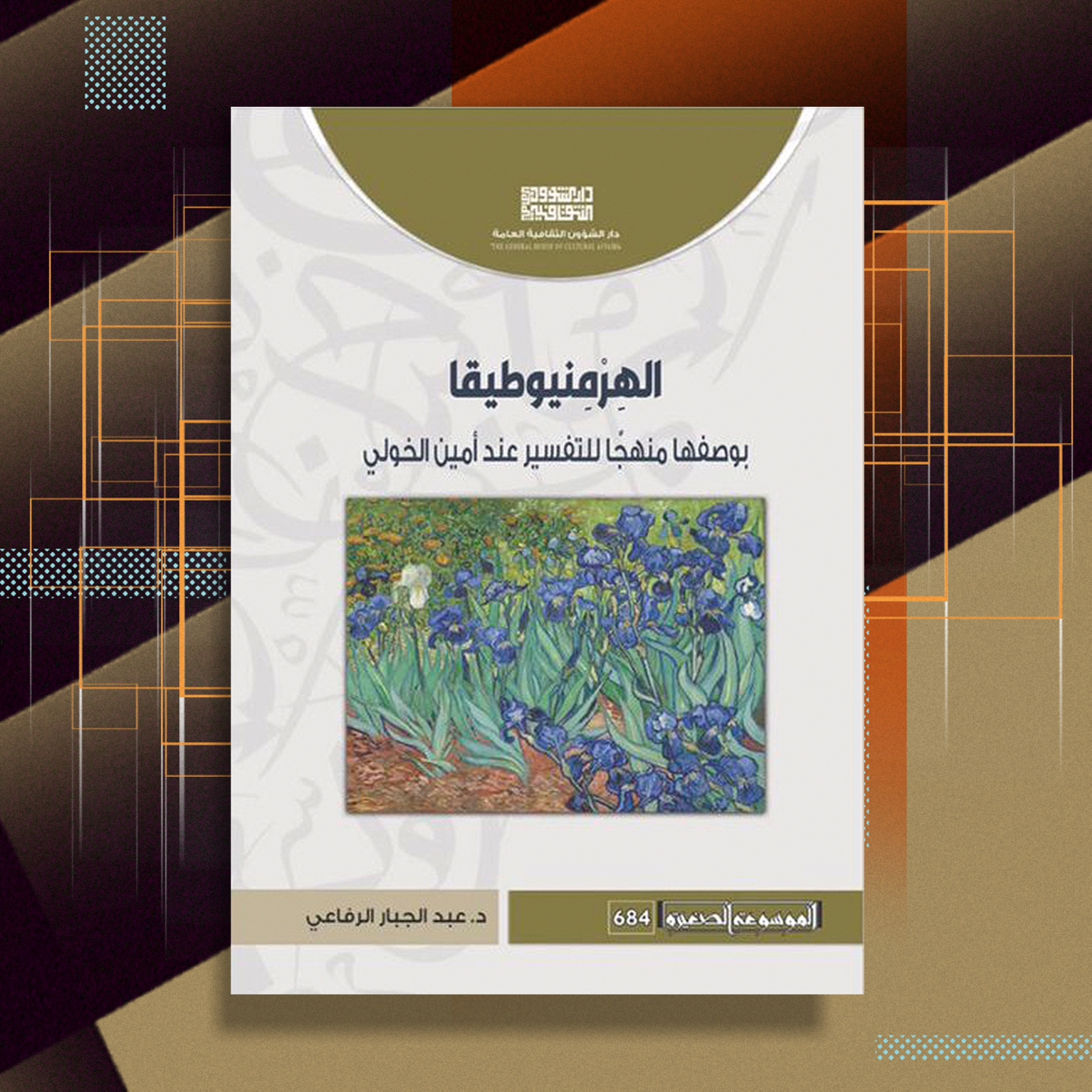The Arab world has a vibrant and rich literary scene. Al Majalla picks out some choice titles in our fortnightly round-up of the latest Arabic books, which aims to highlight some trends and thinking in the Arab world.
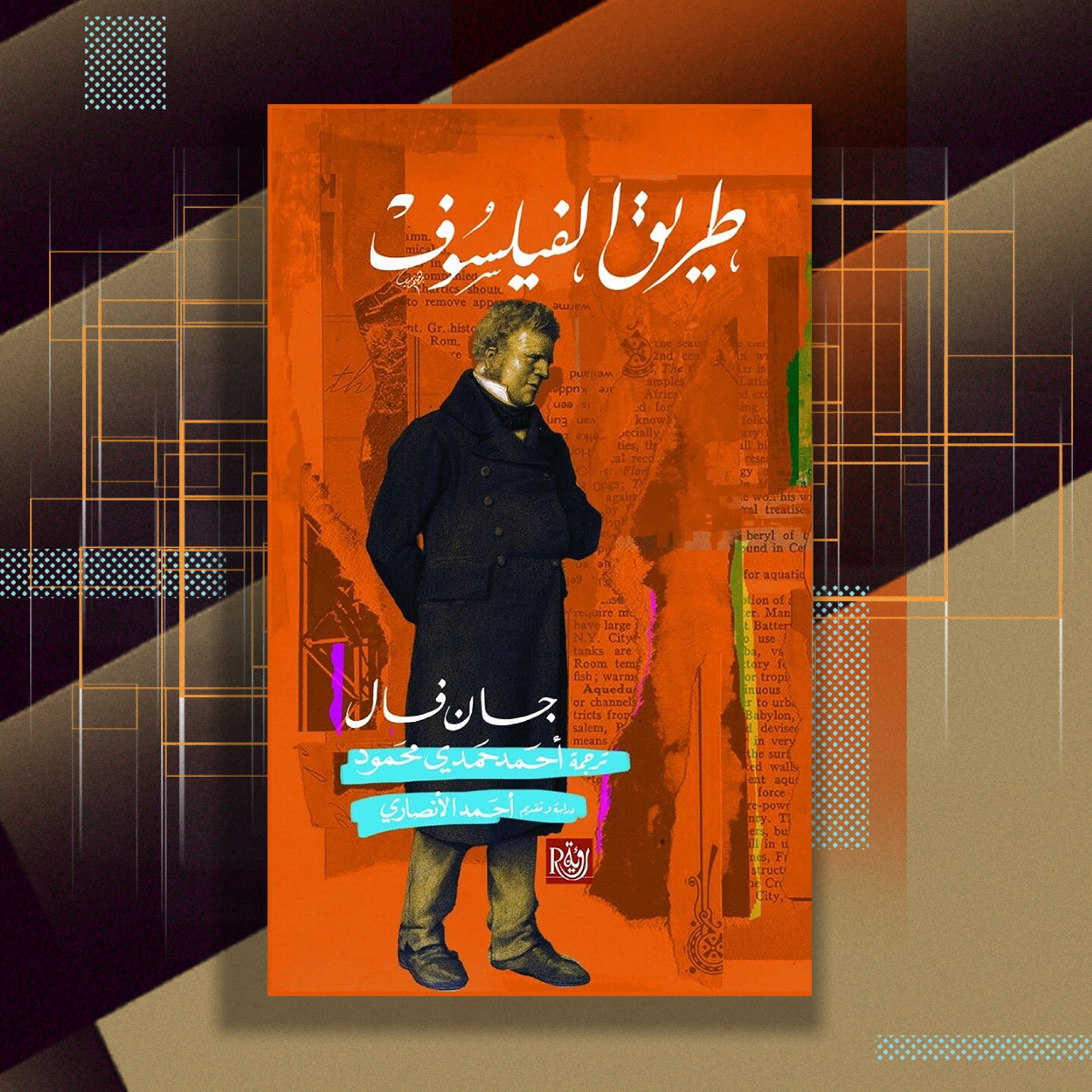
The Philosopher’s Way
Author: Jean Wahl
Translator: Ahmed Hamdi Mahmoud
Study and Introduction: Ahmed Al-Ansari
Publisher: Roueya Publishing & Distribution, Egypt
For students and enthusiasts of philosophy, French writer Jean Wahl’s 1948 book The Philosophers Way is increasingly seen as indispensable. Appealing beyond the specialist to a more general audience, it traces the development of philosophical ideas, examining the positions of different schools of thought and explaining their historical context. First published in Arabic in 1967, the book has recently been reissued in recognition of its value and status.
Wahl’s book defines and redefines numerous philosophical concepts with precision, clarity and analytical depth, yet it has a straightforward and lucid style despite its breadth, the table of contents alone revealing the diversity of topics it explores, including metaphysics, substance, being, existence, reality, becoming, essence, form, quantity, quality, freedom, theories of knowledge, value, the soul, and dialectics.
The book is a compilation of lectures the author delivered at various academic institutions, and as the publisher notes, this distinguishes it from the wave of simplified philosophy books that gained popularity in the 1930s and 1940s such as The Story of Philosophy and The Pleasures of Philosophy. Wahl’s offering presents philosophy not as mere theoretical discourse or historical record, but as a lived and vital experience.
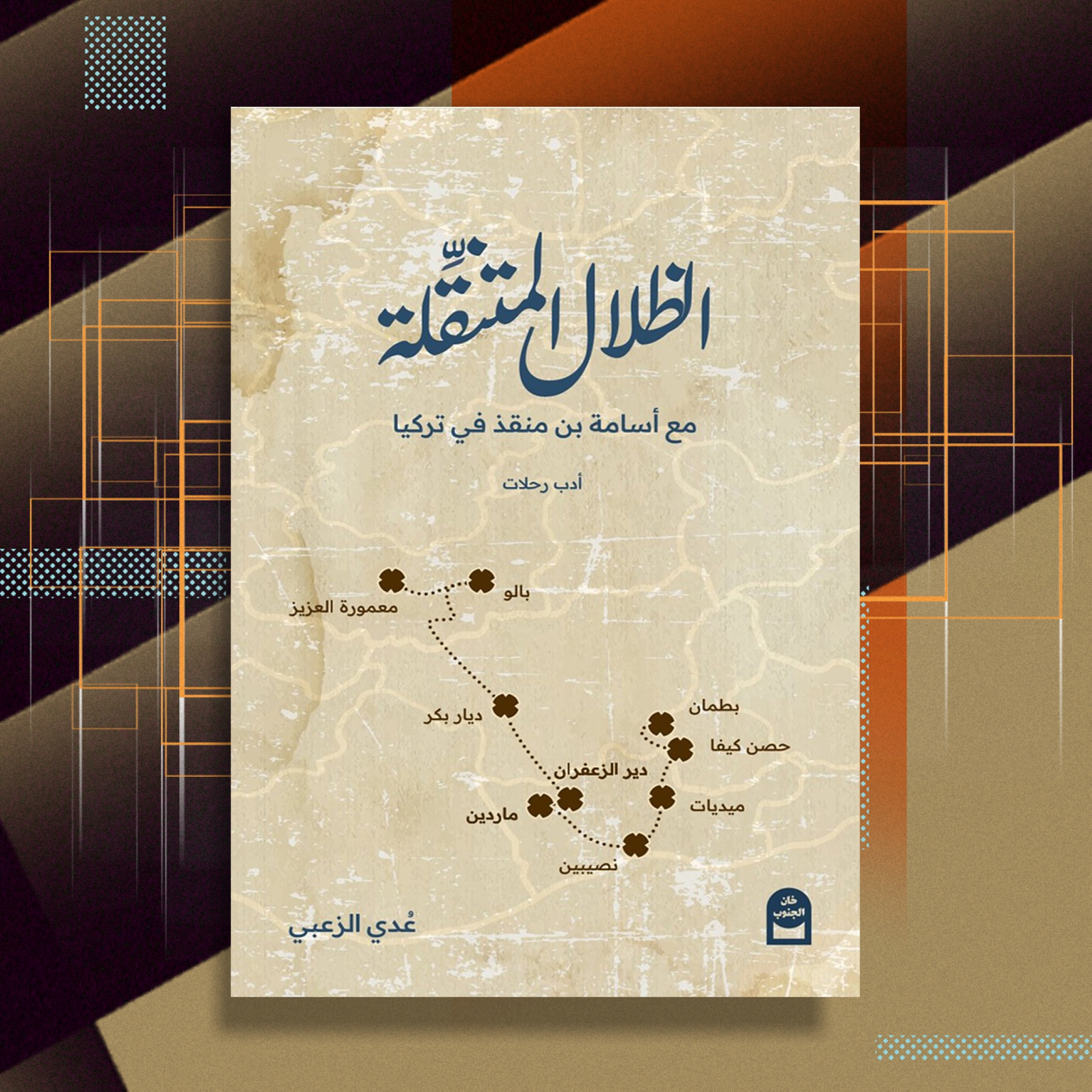
Shifting Shadows: With Usama ibn Munqidh in Turkey
Author: Adi al-Zoubi
Publisher: Khan al-Janoub, Germany
Syrian writer Adi al-Zoubi journeys through Turkey in the footsteps of medieval poet Usama ibn Munqidh through, a figure with whom the author feels a profound kinship, especially in their shared experiences of exile, and loss of homeland and family. Born more than 900 years ago, Usama travelled extensively, including in Egypt, Syria, Palestine, and along the Tigris River, while also making a pilgrimage to Hajj. Many of his family members died in an earthquake in Syria, north-west of Hama. The echoes of displacement and estrangement ring loud across Syria today.
The journey, therefore, is steeped in sorrow, despair and anguish. “I too stand at a crossroads,” the author says. “After the collapse of hopes in a world that does not care for us, after Syria’s descent into an abyss with no end, after my failure to organise my material, emotional, familial, and personal life, and after long years burdened with restless wanderings, I decided to travel to Upper Mesopotamia”.
Usama ibn Munqidh spent a decade in Hisn Kayfa, an ancient town along the Tigris in south-eastern Turkey, where today there are large Kurdish populations. It was here that he composed most of his works and contemplated his destiny. Through this pilgrimage, the author seeks to understand both Usama and himself, despite their many differences (for instance, Usama was a knight, whereas al-Zoubi fears weapons).
The Usama he pursues was sociable and welcome in the courts of rulers and leaders, where he got entangled in political intrigues. Both men explore issues such as fate, calamity, and distraction in a dark and unforgiving world. Ultimately, this is a profoundly personal book, yet it also captures the collective experiences of countless Syrians forced into exile. In this context, Usama ibn Munqidh emerges as a persistent presence: a symbol of pain, estrangement, and the loss of loved ones.
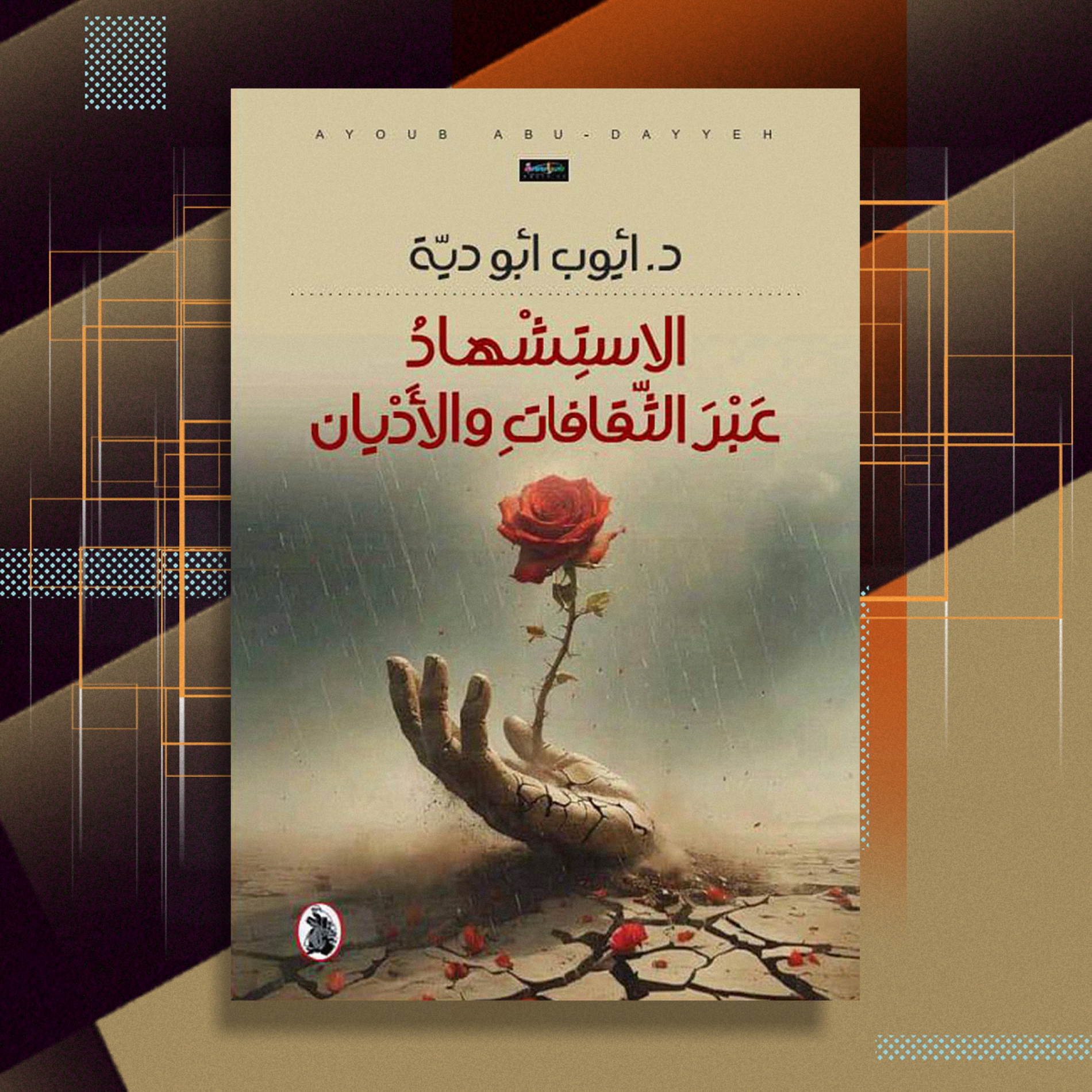
Martyrdom Across Cultures and Religions
Author: Ayoub Aboudiyeh
Publisher: Arab Scientific Publishers, Lebanon
The notion of martyrdom—dying in the name of a cause, nation, idea or leader—is not exclusive to any single culture or religion; rather, it is a shared thread woven through the fabric of civilisations, used by humanity to ennoble death, giving it meaning and permanence across time.
In Martyrdom Across Cultures and Religions, Jordanian author Ayoub Aboudiyeh explores this idea across the world’s cultures and faiths, examining how it emerged, evolved and ultimately became a creative response to the existential certainty of death. Aboudiyeh presents martyrdom as a shared human legacy that has long served to unite different peoples through common values and meaning.
This is not a historical account of how various traditions have perceived martyrdom. Instead, it maps global cultural patterns, which helps to explain why the appeal of martyrdom has never waned but continues to resonate through religions, civilisations and even the routine behaviours of everyday life. To associate martyrdom exclusively with Islam, the author argues, is to fundamentally misunderstand a concept that has been intellectually, emotionally and psychologically embedded in the lives of peoples throughout history.


